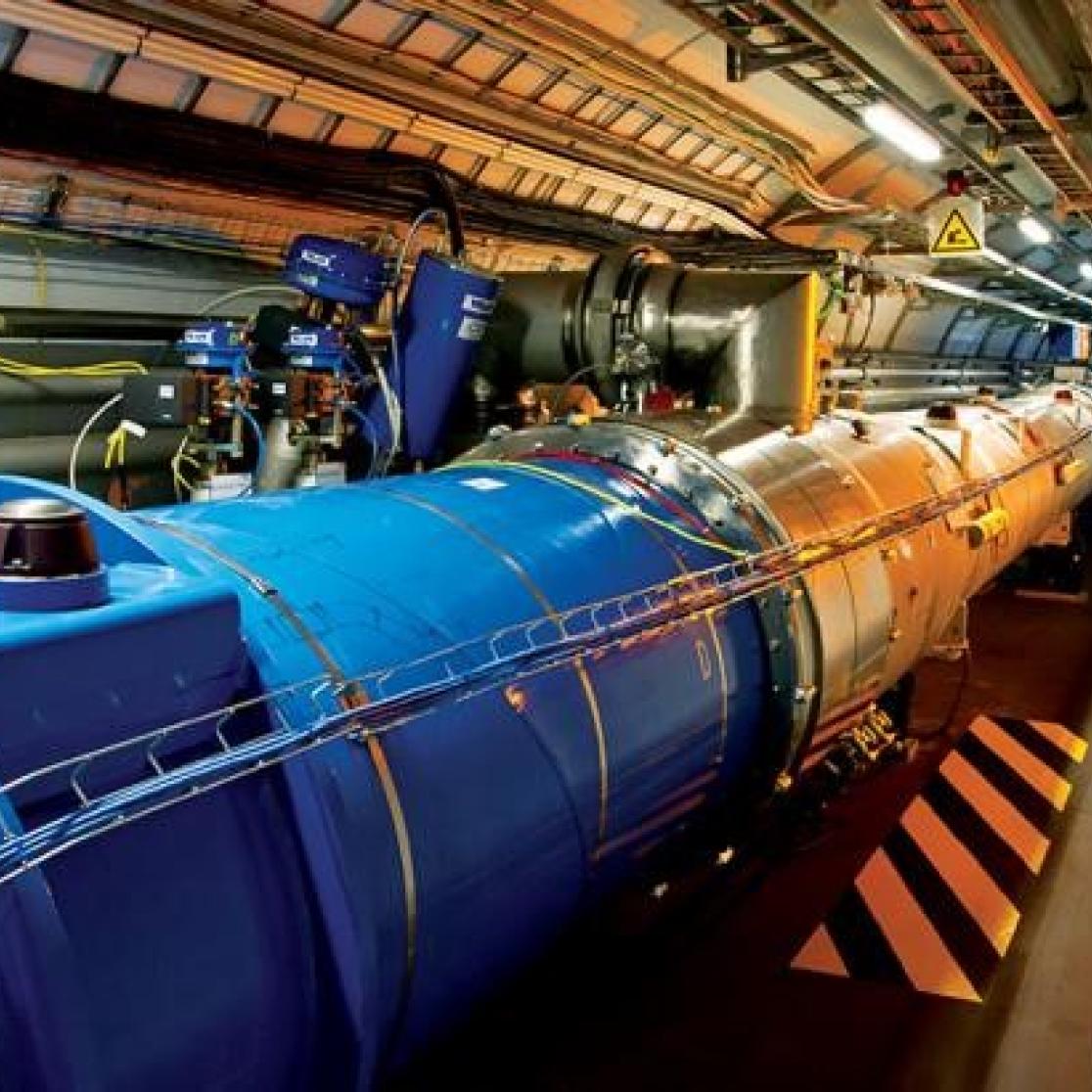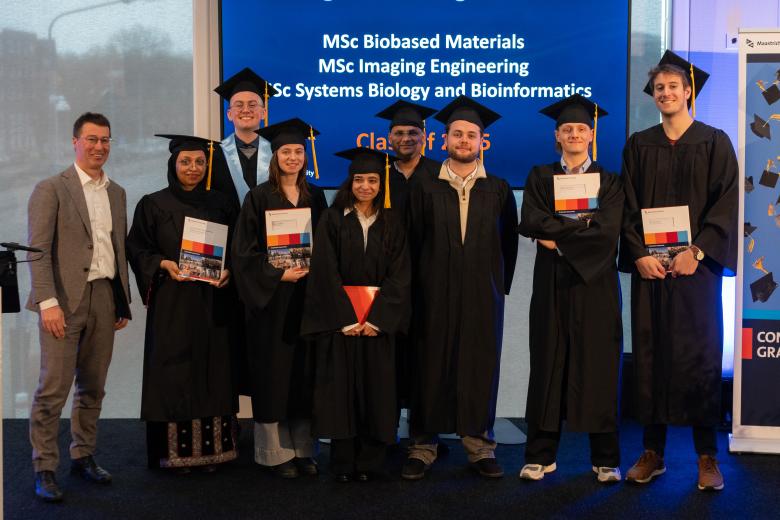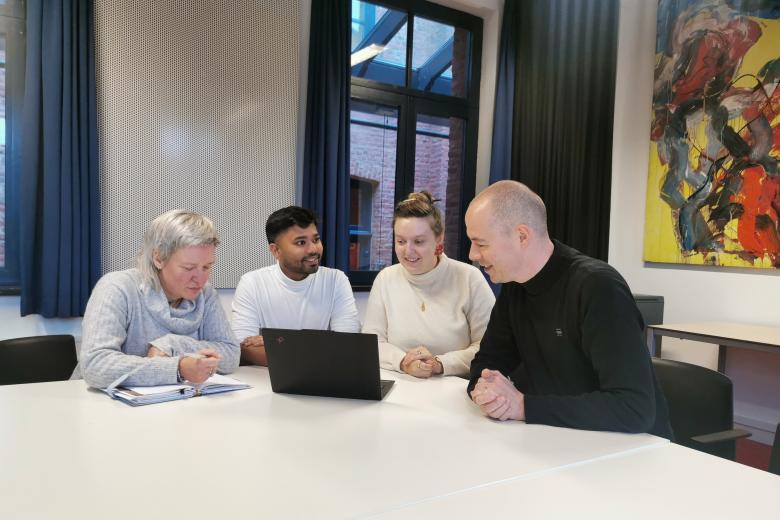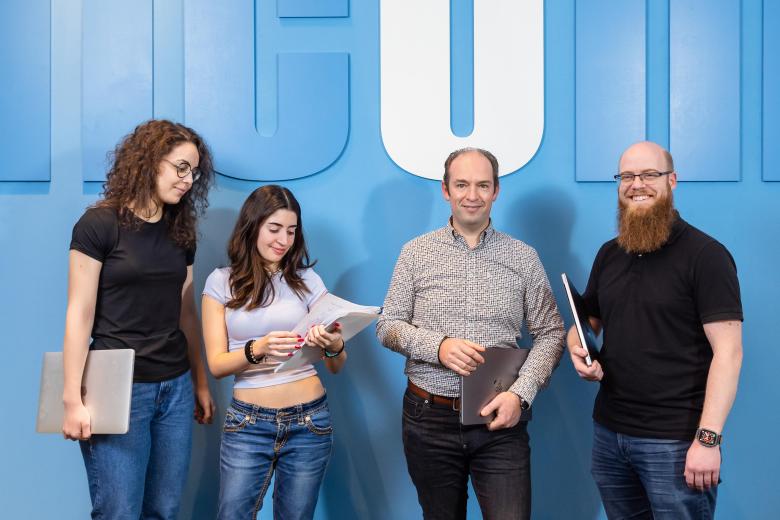Maastricht University contributes to FASTTRACK: extremely fast particle detection at CERN
Maastricht University is participating in the FASTTRACK project, which has been awarded a €21.7 million NWO Roadmap grant. FASTTRACK is developing new sensor technologies for CERN, the international centre for particle physics. These innovations will enable extremely fast detection of particle collisions in the Large Hadron Collider.
This increased detection speed is essential, as the LHC is being upgraded to its ‘high-luminosity’ version. High luminosity means more collisions and thus a greater chance of discovering rare phenomena, but also a vastly increased volume of data. FASTTRACK will help process this enormous data stream.
At the Faculty of Science and Engineering, Marcel Merk, Jacco de Vries (GWFP), David Groep (DACS), and Panos Christakoglou (MSP) are contributing to FASTTRACK. They are developing new detectors and software algorithms, including artificial intelligence, to analyse the massive data flows from LHC collisions. Merk states, “Our computing infrastructure and algorithms help identify rare particle processes and contribute to research into the fundamental building blocks of the universe.”
Thanks to the work of the scientists and engineers at FASTTRACK, the detector will be able to observe ten times as many particles simultaneously as it currently does, while the timing of detection is recorded with 500 times greater precision. Detection occurs within 50 picoseconds, a timescale so brief that it is almost incomprehensible to humans. It is the scale at which atoms vibrate, and the fastest electronics operate.
The FASTTRACK project brings together the National Institute for Subatomic Physics (Nikhef) and six Dutch universities, with Nikhef coordinating the initiative. In the current 2024 funding round, NWO has allocated €21.7 million to FASTTRACK for material investments, while the participating institutions themselves are funding €31.5 million for staff and travel expenses.

Also read
-
Ron Heeren appointed fellow of the Netherlands Academy of Engineering
Professor Ron Heeren, distinguished university professor at Maastricht University (UM) and director of the Maastricht MultiModal Molecular Imaging Institute (M4i), was appointed as a fellow of the Netherlands Academy of Engineering (NAE) on Thursday 11 December.
-
UM builds open education and digital literacy into BKO/UTQ
Maastricht University is taking a practical step to support early-career teachers: open education and digital literacy will be built more firmly into the BKO/UTQ.
-
Companies unlock Maastricht University’s hidden talent
@Work students serve as a bridge between academia and industry, helping companies recognise the university’s strengths. “We’re a hidden gem that’s gradually being discovered, as more and more people learn that we are one of the largest academic data science and AI programmes in the Netherlands